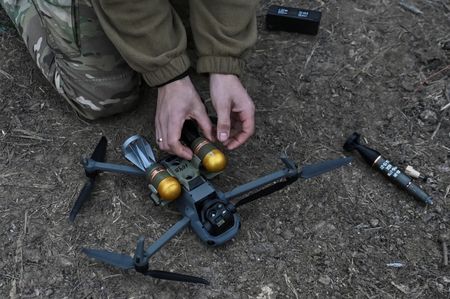(Reuters) -The U.S. Food and Drug Administration on Wednesday authorized the use of AstraZeneca’s antibody cocktail to prevent COVID-19 infections in individuals with weak immune systems or a history of severe side effects from coronavirus vaccines.
The antibody cocktail, Evusheld, is only authorized for adults and adolescents who are not currently infected with the novel coronavirus and have not recently been exposed to an infected individual, the regulator said https://www.fda.gov/news-events/press-announcements/coronavirus-covid-19-update-fda-authorizes-new-long-acting-monoclonal-antibodies-pre-exposure.
The authorization for the therapy, made up of two monoclonal antibodies tixagevimab and cilgavimab, marks a significant step for AstraZeneca, whose widely used COVID-19 vaccine is yet to be approved by U.S. authorities.
AstraZeneca last month had agreed to supply the U.S. government with 700,000 doses of Evusheld, which had earlier shown https://reut.rs/3oAVZ7K to cut the risk of people developing any COVID-19 symptoms by 77% in a late-stage trial.
While vaccines rely on an intact immune system to develop targeted antibodies and infection-fighting cells, Evusheld contains lab-made antibodies designed to linger in the body for months to contain the virus in case of an infection.
AstraZeneca’s therapy, given in two sequential injections, is designed to last several months to a year.
Although vaccines currently provide the best defense against COVID-19, certain immune compromised individuals or those who have a history of severe adverse reactions to a vaccine need an alternative prevention option, said Patrizia Cavazzoni, director of the FDA’s Center for Drug Evaluation and Research.
However, the FDA added that pre-exposure prevention with Evusheld is not a substitute for vaccination in individuals for whom COVID-19 vaccination is recommended.
Monoclonal antibodies aim to stop COVID-19 from worsening during early, milder stages. Drugmakers such as Eli Lilly, Regeneron, and GlaxoSmithKline with partner Vir make similar therapies.
(Reporting by Manas Mishra and Bhanvi Satija in Bengaluru; Editing by Shounak Dasgupta)












